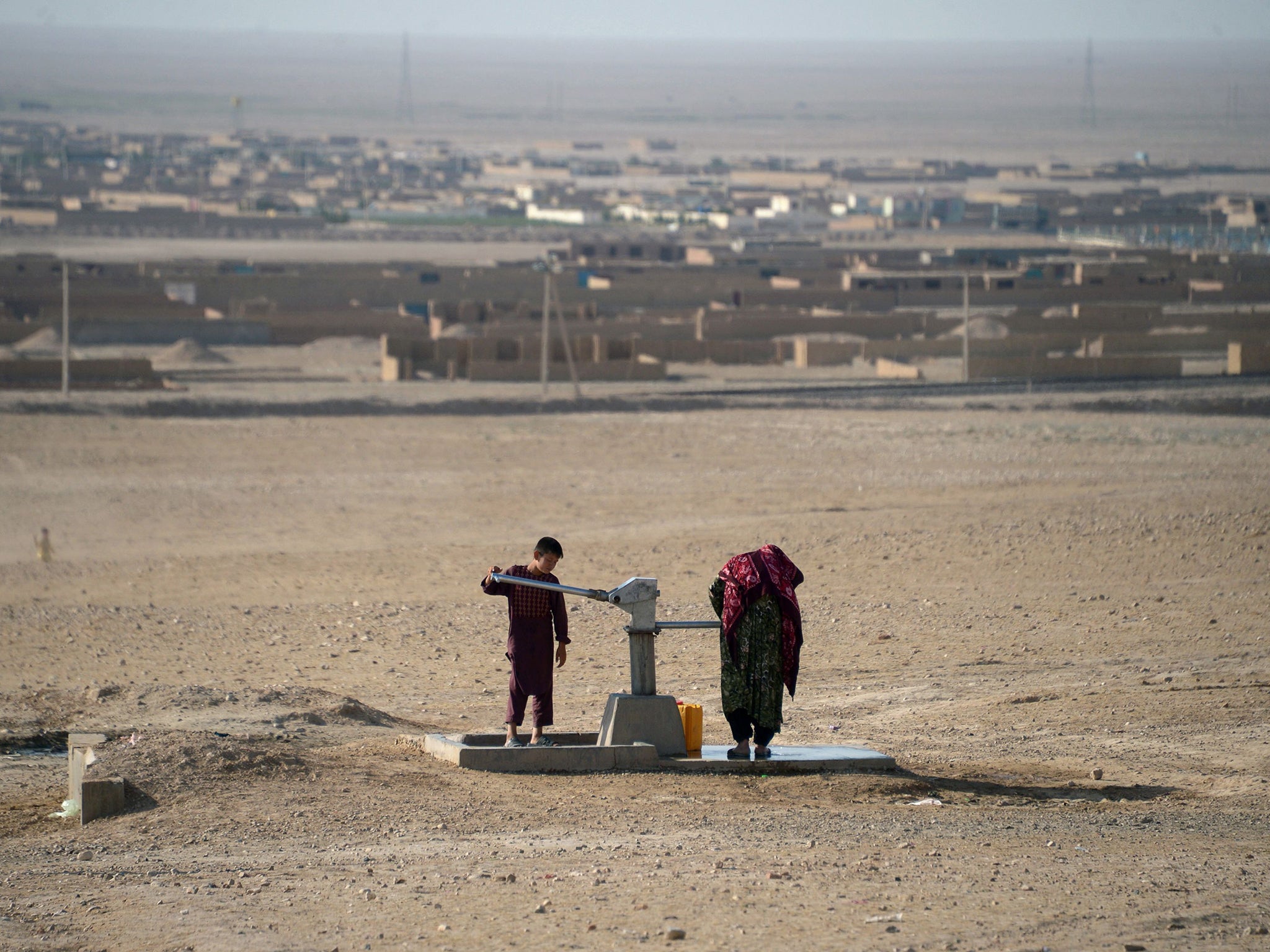More Afghans displaced by drought than conflict, UN warns
Over two million are threatened by effects of water shortages

More people have been displaced by drought in western Afghanistan than those uprooted by conflict, the United Nations has said.
A total of 275,000 people were displaced by drought this year, 52,000 more than the number who fled conflict, with more than two million threatened by the effects of water shortages.
Reports from the UN and aid charities described farmers lacking seeds to sow, following crop failures in some areas, and livestock dying from the lack of anything to eat.

Afghanistan, where nearly 20 million people rely on farming, has suffered a 45 per cent drop in agricultural output this year as drought hit the country, officials at the ministry of agriculture have said.
At least 120,000 people fleeing the drought arrived in the town of Qala-e-Naw, in Badghis province, in the week leading up to 9 September, the UN humanitarian office reported.
A second UN report, which contained data covering August, said more than 100,000 people may have moved to Herat city for the same reason by the end of last month.
The report estimated 2.2 million Afghans would be affected by the drought this year.
In Qala-e-Naw, where there are an estimated 66,500 drought-displaced people, supplies and humanitarian aid are already insufficient to meet the needs of newly arrived families.
The UN cited an assessment by aid charity World Vision International, which said 99 per cent of people in Badghis thought their food situation was worse or a lot worse than a year ago.
Most farmers lost last season’s harvest and nearly all of them lacked seeds for the new planting season, the UN study said, noting reports saying around 40 per cent of livestock have been lost in Badghis due to a lack of pasture and fodder.
The number of Afghans in a food “crisis” was abnormally high, the Famine Early Warning Systems Network (FEWS NET), a US-funded monitoring service, said in a report on 31 August.
“Crisis” is step three on a five step scale, where four is “emergency” and five is “catastrophe” and possible famine.
Emergency outcomes are expected to emerge in Badghis and Faryab provinces in January, FEWS NET said.
“Normally, during this time period, food security outcomes begin to seasonally improve in much of the country, but due to drought and severe reduction in wheat production, reduced labour opportunities and continued conflict, more households face crisis outcomes than normal,” said the network.
Additional reporting by Reuters
Join our commenting forum
Join thought-provoking conversations, follow other Independent readers and see their replies
Comments
Bookmark popover
Removed from bookmarks